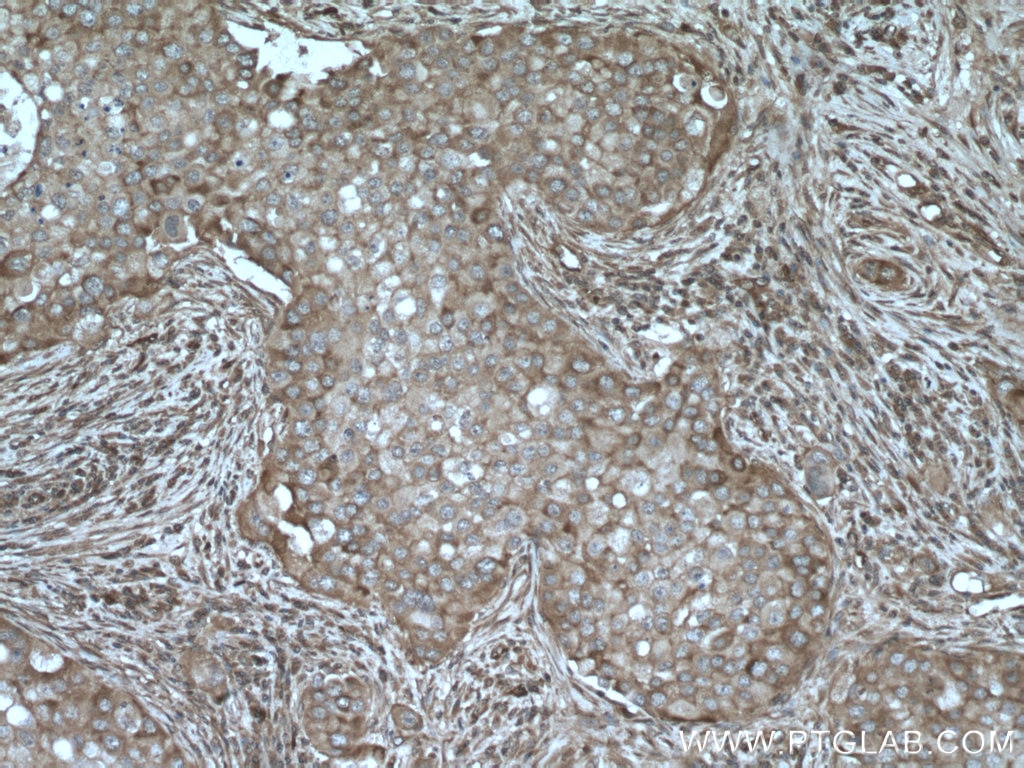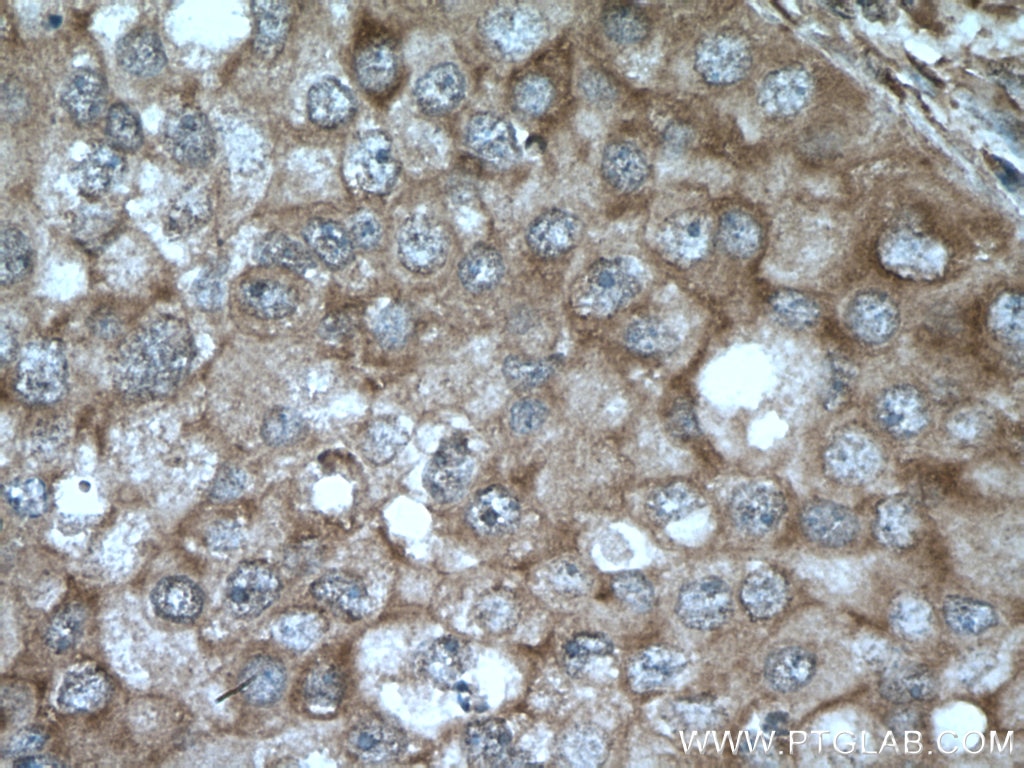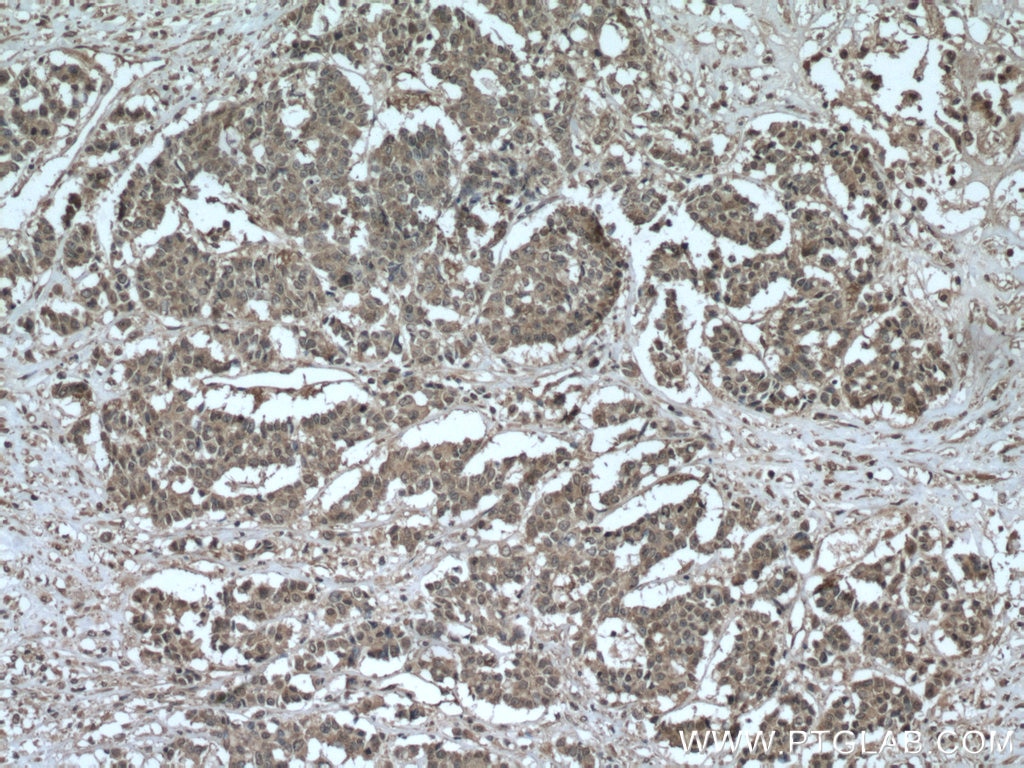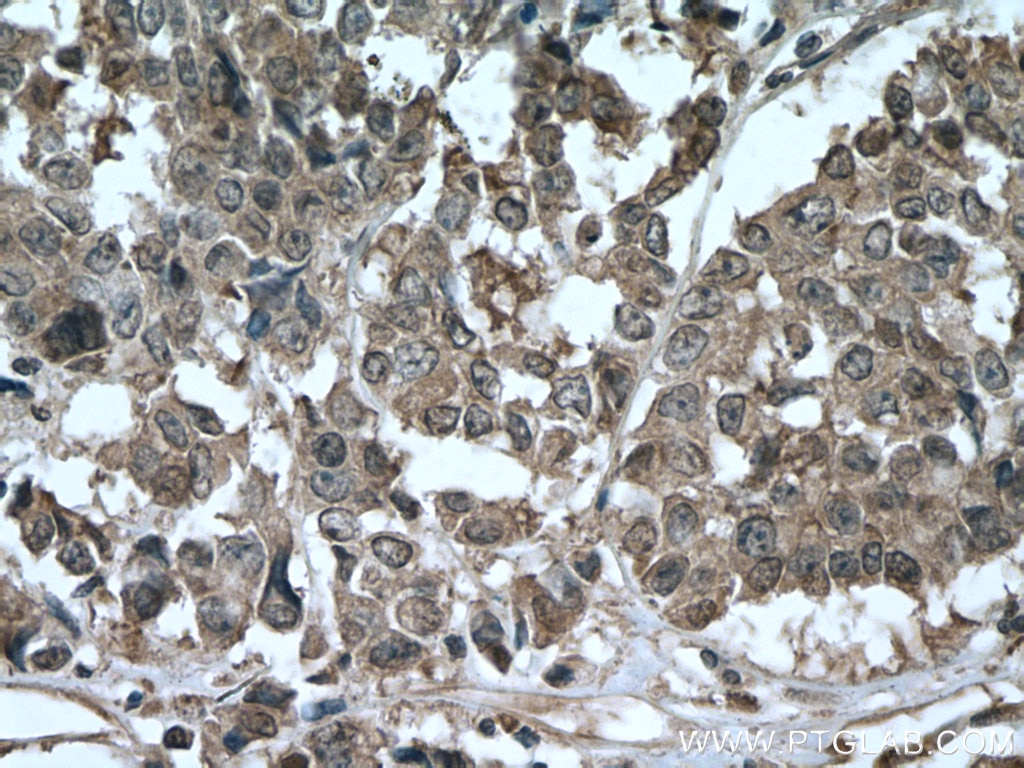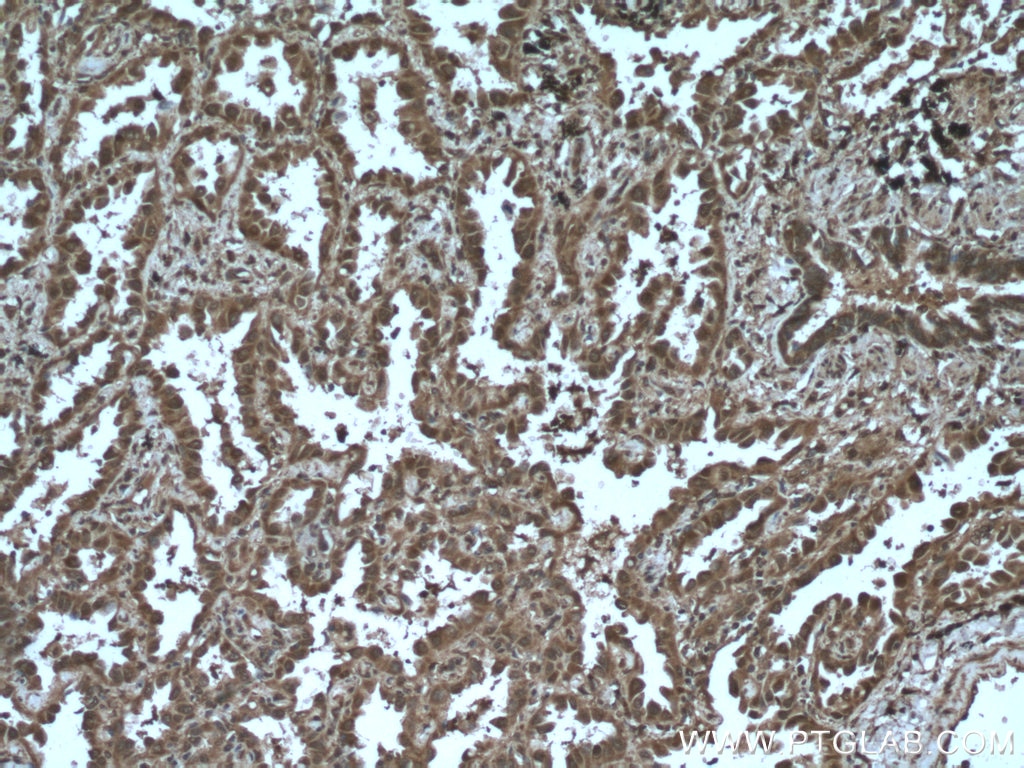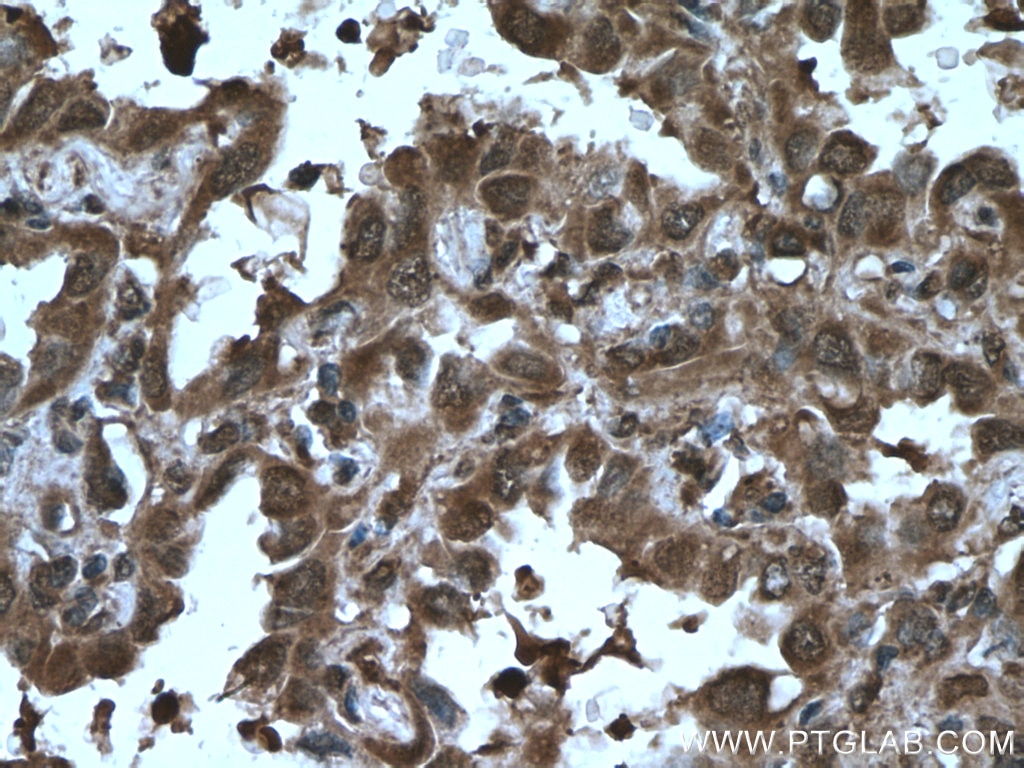Tested Applications
| Positive WB detected in | HeLa cells |
| Positive IHC detected in | human breast cancer tissue, human colon cancer tissue, human lung cancer tissue Note: suggested antigen retrieval with TE buffer pH 9.0; (*) Alternatively, antigen retrieval may be performed with citrate buffer pH 6.0 |
Recommended dilution
| Application | Dilution |
|---|---|
| Western Blot (WB) | WB : 1:500-1:1000 |
| Immunohistochemistry (IHC) | IHC : 1:50-1:500 |
| It is recommended that this reagent should be titrated in each testing system to obtain optimal results. | |
| Sample-dependent, Check data in validation data gallery. | |
Product Information
27947-1-AP targets AKAP13 in WB, IHC, ELISA applications and shows reactivity with human samples.
| Tested Reactivity | human |
| Host / Isotype | Rabbit / IgG |
| Class | Polyclonal |
| Type | Antibody |
| Immunogen |
CatNo: Ag27486 Product name: Recombinant human AKAP13 protein Source: e coli.-derived, PGEX-4T Tag: GST Domain: 359-587 aa of NM_001270546 Sequence: MIVEEENTDRSCRKKNKGVERKGEEVEPAPIVDSGTVSDQDSCLQSLPDCGVKGTEGLSSCGNRNEETGTKSSGMPTDQESLSSGDAVLQRDLVMEPGTAQYSSGGELGGISTTNVSTPDTAGEMEHGLMNPDATVWKNVLQGGESTKERFENSNIGTAGASDVHVTSKPVDKISVPNCAPAASSLDGNKPAESSLAFSNEETSTEKTAETETSRSREESADAPVDQNSV Predict reactive species |
| Full Name | A kinase (PRKA) anchor protein 13 |
| Calculated Molecular Weight | 308 kDa |
| Observed Molecular Weight | 308 kDa |
| GenBank Accession Number | NM_001270546 |
| Gene Symbol | AKAP13 |
| Gene ID (NCBI) | 11214 |
| RRID | AB_2881017 |
| Conjugate | Unconjugated |
| Form | Liquid |
| Purification Method | Antigen affinity purification |
| UNIPROT ID | Q12802 |
| Storage Buffer | PBS with 0.02% sodium azide and 50% glycerol, pH 7.3. |
| Storage Conditions | Store at -20°C. Stable for one year after shipment. Aliquoting is unnecessary for -20oC storage. 20ul sizes contain 0.1% BSA. |
Background Information
The A-kinase anchor proteins (AKAPs) are a group of structurally diverse proteins which have the common function of binding to the regulatory subunit of protein kinase A (PKA) and confining the holoenzyme to discrete locations within the cell. This gene encodes a member of the AKAP family. Alternative splicing of this gene results in multiple transcript variants encoding different isoforms containing c-terminal dbl oncogene homology (DH) and pleckstrin homology (PH) domains. The DH domain is associated with guanine nucleotide exchange activation for the Rho/Rac family of small GTP binding proteins, resulting in the conversion of the inactive GTPase to the active form capable of transducing signals. The PH domain has multiple functions
Protocols
| Product Specific Protocols | |
|---|---|
| IHC protocol for AKAP13 antibody 27947-1-AP | Download protocol |
| WB protocol for AKAP13 antibody 27947-1-AP | Download protocol |
| Standard Protocols | |
|---|---|
| Click here to view our Standard Protocols |


